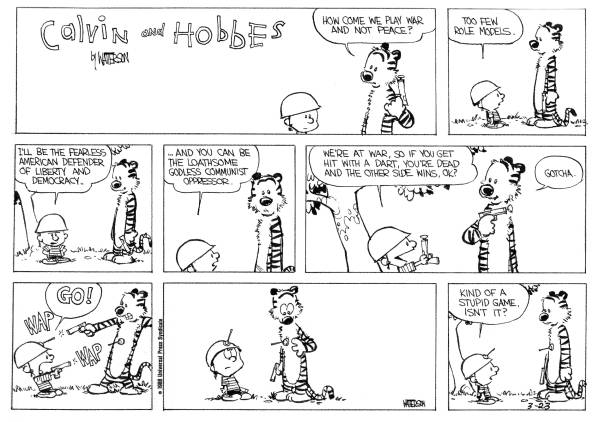For years some of the most popular television programmes in English-speaking countries have been cooking shows. That may point to a healthy interest in food, but then again it may not. The historian Livy thought the Roman empire started to decay when cooks acquired celebrity status.Well, but on to serious discussions then ...
It is one tough question. Even this ill-informed blogger has often commented about the world's rather lackadaisical approach to the food issue, and the recent spikes in food prices. But then when even my students don't listen to what I have to say, why should the world!
the fact that agriculture has experienced two big price spikes in under four years suggests that something serious is rattling the world’s food chain. ...There are a couple of things happening: First, in the developed world, the fluctuations in raw grain prices do not affect us that much because the prices we pay for food are dependent more on costs of preparation, packaging, etc. But, in a poor country, the population depends on that raw staple, which they meticulously cook and consume. They feel the price hikes, and find it awfully difficult. And we have the arrogance to blame them for wanting more food!
An era of cheap food has come to an end. A combination of factors—rising demand in India and China, a dietary shift away from cereals towards meat and vegetables, the increasing use of maize as a fuel, and developments outside agriculture, such as the fall in the dollar—have brought to a close a period starting in the early 1970s in which the real price of staple crops (rice, wheat and maize) fell year after year.
Second, we have come to believe that India and China and many other countries have become our competitors and, therefore, we have started discounting the magnitude of global poverty. The reality is far from the truth.
So, where do we go from here?
it is not surprising that the food crisis has produced contradictory accounts of the main problem and radically different proposals for solving it. One group is concerned mainly about feeding the world’s growing population. It argues that high and volatile prices will make the job harder and that more needs to be done to boost supplies through the spread of modern farming, plant research and food processing in poor countries. For those in this group—food companies, plant breeders and international development agencies—the Green Revolution was a stunning success and needs to be followed by a second one now.
The alternative view is sceptical of, or even downright hostile to, the modern food business. This group, influential among non-governmental organisations and some consumers, concentrates more on the food problems of richer countries, such as concerns about animal welfare and obesity. It argues that modern agriculture produces food that is tasteless, nutritionally inadequate and environmentally disastrous. It thinks the Green Revolution has been a failure, or at least that it has done more environmental damage and brought fewer benefits than anyone expected.So, what is the bottom line?
although the concerns of the critics of modern agriculture may be understandable, the reaction against intensive farming is a luxury of the rich. Traditional and organic farming could feed Europeans and Americans well. It cannot feed the world.I have been preaching this same bottom line for years in my classes. But then, to some extent, it is not kosher to make such statements anymore given the irrational penchant for locavore and organic eating, which, we forget, is a luxury that only the rich countries can afford. It is like how one student a few years ago remarked in a class about the simple pleasures of boating--she loves to take her paddle boat to the river and spend hours floating by. But, to the youth of her age in a poor country, that boating--on a rudimentary catamaran, for instance--will be the daily chore, for hours on, in a fishermen community that barely subsists.
I leave it to the Economist for the last words ...
There are plenty of reasons to worry about food: uncertain politics, volatile prices, hunger amid plenty. Yet when all is said and done, the world is at the start of a new agricultural revolution that could, for the first time ever, feed all mankind adequately. The genomes of most major crops have been sequenced and the benefits of that are starting to appear. Countries from Brazil to Vietnam have shown that, given the right technology, sensible policies and a bit of luck, they can transform themselves from basket cases to bread baskets. That, surely, is cause for optimism.Here is to hoping that we, across the planet, will start doing the right things.













